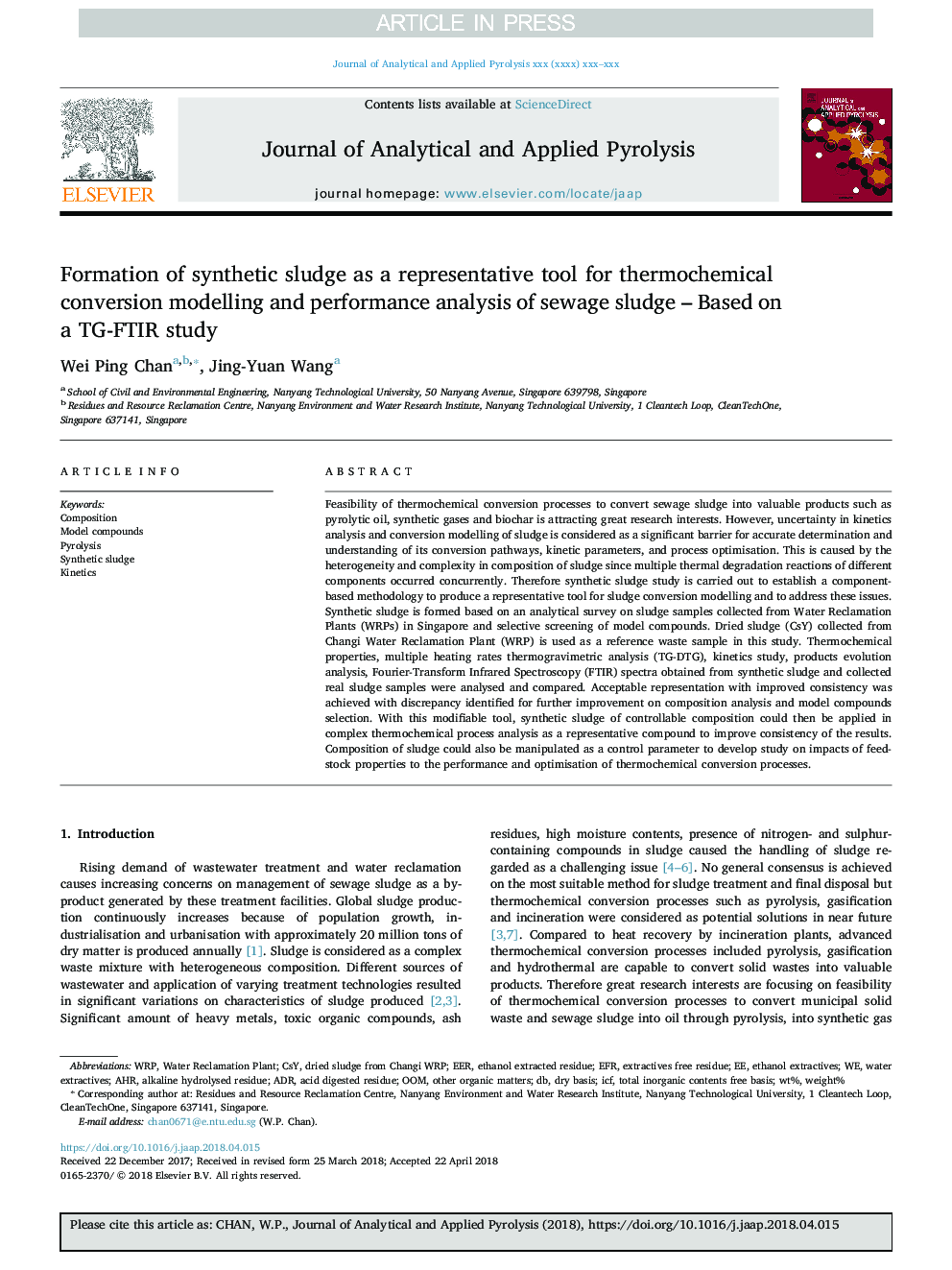| Article ID | Journal | Published Year | Pages | File Type |
|---|---|---|---|---|
| 7606246 | Journal of Analytical and Applied Pyrolysis | 2018 | 10 Pages |
Abstract
Feasibility of thermochemical conversion processes to convert sewage sludge into valuable products such as pyrolytic oil, synthetic gases and biochar is attracting great research interests. However, uncertainty in kinetics analysis and conversion modelling of sludge is considered as a significant barrier for accurate determination and understanding of its conversion pathways, kinetic parameters, and process optimisation. This is caused by the heterogeneity and complexity in composition of sludge since multiple thermal degradation reactions of different components occurred concurrently. Therefore synthetic sludge study is carried out to establish a component-based methodology to produce a representative tool for sludge conversion modelling and to address these issues. Synthetic sludge is formed based on an analytical survey on sludge samples collected from Water Reclamation Plants (WRPs) in Singapore and selective screening of model compounds. Dried sludge (CsY) collected from Changi Water Reclamation Plant (WRP) is used as a reference waste sample in this study. Thermochemical properties, multiple heating rates thermogravimetric analysis (TG-DTG), kinetics study, products evolution analysis, Fourier-Transform Infrared Spectroscopy (FTIR) spectra obtained from synthetic sludge and collected real sludge samples were analysed and compared. Acceptable representation with improved consistency was achieved with discrepancy identified for further improvement on composition analysis and model compounds selection. With this modifiable tool, synthetic sludge of controllable composition could then be applied in complex thermochemical process analysis as a representative compound to improve consistency of the results. Composition of sludge could also be manipulated as a control parameter to develop study on impacts of feedstock properties to the performance and optimisation of thermochemical conversion processes.
Keywords
Related Topics
Physical Sciences and Engineering
Chemistry
Analytical Chemistry
Authors
Wei Ping Chan, Jing-Yuan Wang,
